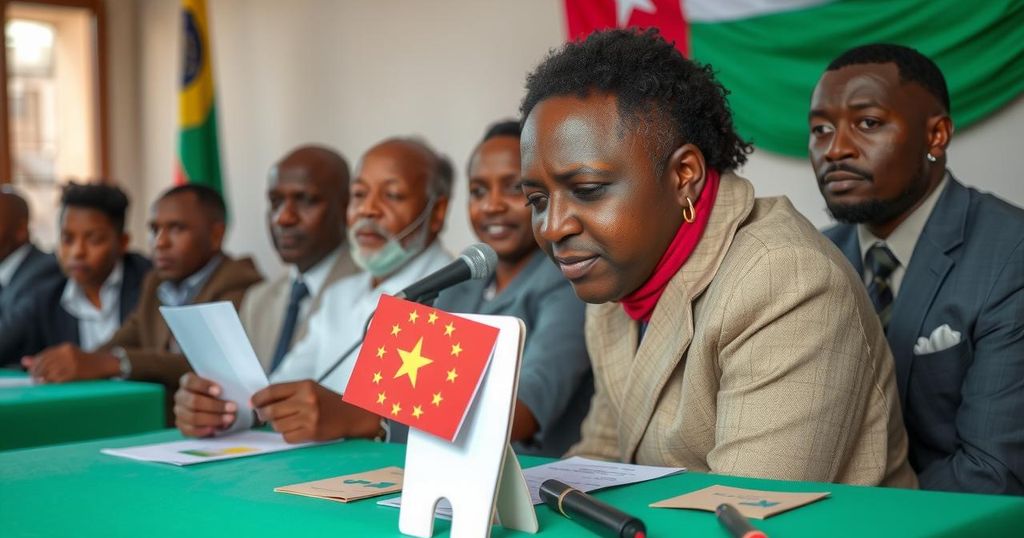Comoros Parliamentary Election: Opposition Boycott Amid Authoritarian Concerns

Comoros recently held a parliamentary election boycotted by opposition parties, citing authoritarianism and electoral concerns. The government anticipates low voter turnout due to citizen disillusionment. President Assoumani has faced criticism for his electoral legitimacy and political repression, with the opposition continuing to question the integrity of the process.
The Comoros recently conducted a parliamentary election amid boycotts from several opposition parties, who allege that President Azali Assoumani’s government is exhibiting increasingly authoritarian tendencies and question the electoral integrity. The one-day election was to fill 33 legislative seats, with results anticipated next week. Approximately 330,000 citizens are registered to vote in the nation of 850,000, yet opposition leaders forecast low voter turnout due to public disillusionment with the electoral process. The ruling party, Assoumani’s Convention for the Renewal of the Comoros, previously secured 20 out of 24 contested seats in the last election.
During this vote, President Assoumani participated in the polling in Mitsoudjé, located on Grande Comore, one of the archipelago’s largest islands. The opposition has expressed continued frustration over past elections, particularly the 2020 parliamentary election, which they labeled a “masquerade.” The last presidential election, which awarded Assoumani another five-year term, was also criticized for fraudulent practices, resulting in widespread civil unrest. Major opposition figures such as Ahmed Abdallah Sambi’s Juwa Party have chosen to boycott both the current and previous elections in protest.
The Comoros, comprised of three islands off the coast of East Africa, has experienced numerous military coups since its independence from France in 1975. Assoumani, a former military officer, originally took power in 1999. After a brief hiatus, he returned to the presidency and has since won three consecutive elections. His administration’s controversial constitutional amendments in 2018 have raised concerns over his disregard for previously established political agreements regarding presidential term limits. The Africa Center for Strategic Studies has highlighted a pattern of increasing political repression and the lack of competitive elections under Assoumani’s rule. Despite adverse weather conditions caused by Tropical Cyclone Dikeledi, officials proceeded with the voting process.
The parliamentary elections in Comoros coincide with a long history of political turmoil, characterized by coups and authoritarian governance. Since gaining independence from France in 1975, the country has faced significant challenges in establishing a stable democratic framework. President Azali Assoumani has been a pivotal figure in Comoros’ political landscape, transitioning from military rule to capture the presidency multiple times. His recent amendments to the constitution have effectively allowed him to extend his rule, creating widespread discontent among opposition parties, which argue against the legitimacy of the electoral process and often choose to boycott elections as a form of protest.
In conclusion, the parliamentary elections in Comoros signify more than just a political event; they epitomize years of dissatisfaction with governance and electoral integrity. The opposition’s decision to boycott the elections reflects a deeper discontent with President Assoumani’s leadership and the perceived erosion of democratic norms. As the nation navigates these turbulent waters, the implications of this election may have far-reaching effects on its future political landscape.
Original Source: apnews.com






